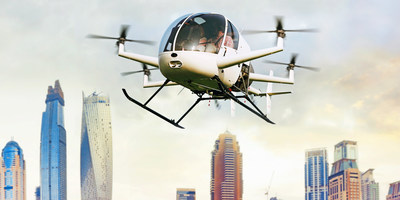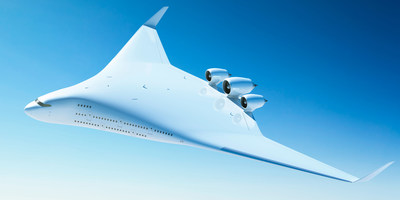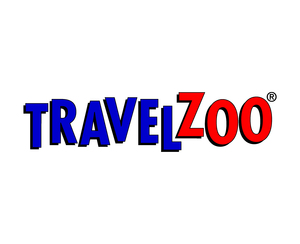Travelzoo and ITB Survey: 90% of Travellers are Not Yet Ready for the Future of Travel
Consumers are particularly untrusting of autonomous travel, such as driverless cars, pilotless planes and passenger drones
BERLIN, March 7, 2018 /PRNewswire/ -- Hyperloop trains, flying on supersonic aircraft, travelling on 'smart' motorways or getting from A to B in autonomous drones—when consumers hear about how travel will look in the future, they are excited, but apprehensive. This is the finding of a survey of 6,008 consumers in Canada, France, Germany, Spain, the United Kingdom and the United States, commissioned by Travelzoo® (NASDAQ: TZOO), a global publisher of exclusive offers and experiences for members, in partnership with ITB Berlin, the world's leading travel trade show.
Joel Brandon-Bravo, Travelzoo General Manager, UK, will present the results of the survey today at the ITB Future Day event in Berlin at 3.15pm local time in Auditorium London, Convention Hall 7.1b.
How do people expect to travel in the future?
In the survey, consumers were first asked about how they expect to travel in the future. Self-driving cars on 'smart highways' are already being tested, so it is no surprise that just over half of consumers (51%) expect to see them become the norm by 2030. This was followed by aircraft powered by alternative fuels (36%), and hyperloops (31%), both of which are already being developed by a variety of established brands and start-ups. Less than a third (28%) expect to see the return of supersonic flights in the next 12 years—this is despite Concorde proving the technology works, and claims from manufacturers like Boom Supersonic that flights will begin by 2022.
Travellers are strongly aligned on the benefits of such new technologies, with nearly three quarters (74%) agreeing that the expected reduction in emissions, congestion and reliance on traditional fuel sources will improve the environment. Many also highlight anticipated faster travel times (88%) and reducing the stress of travel (63%) as benefits.
Why are consumers untrusting of these future ways of travelling?
However, when it comes to pilotless aircraft or autonomous, passenger-carrying drones, consumers are far more cautious in their expectations around adoption. Only one in five (20%) believe they will become the norm by 2030. Indeed, such is the scepticism, that a significantly higher percentage (38%) state they'd prefer to risk teleportation, a technology that doesn't even exist yet, to get to or from their holiday.
Confidence in autonomous flight technology is very low among respondents. Just 7% admit to a preference to use it compared to aircraft powered by 'alternative' fuels (32%) or a supersonic jet (31%). Overall, more than three quarters (76%) of consumers would not trust driverless or pilotless technology enough to travel in it, and 78% of travellers state they would be 'very' or 'quite' worried about its safety and reliability (compared to 55% for both supersonic aircraft and hyperloops).
Joel Brandon-Bravo explains: "Advances in automation, artificial intelligence, design and materials, and pure necessity, are combining to drive a revolution in how we will travel and take holidays in the future. But our study emphasises that there is a trust gap that must be bridged. Only 8% of respondents globally said they would be comfortable flying in a drone—so a message to the entrepreneurs and organisers rushing to be first to market is that a huge majority of their potential customers need to be convinced about safety and reliability."
Consumers do not want to pay 'much more'
Furthermore, consumers are concerned that these new forms of travel will only be available to a few to enjoy. Eight out of ten believe they'll be a luxury only a few can afford, and 60% doubt they would make travel more affordable. Only 4% of respondents state they are prepared to pay 'much more' than they do now for their holiday travel—this is not good news when enormous upfront development and infrastructure costs will need to be met.
By transport type, consumers tend to associate speed with desirability, demonstrating a slight readiness to pay out 'much more' for hyperloops (an average of 7% in France, Germany and Spain) and supersonic flights (10% in the UK, 17% in the USA) according to the survey, which were both forms of transport they also associate most with perceptions of luxury and convenience.
However, where automation has removed the need for human expertise or skill—such as pilotless aircraft or driverless cars—travellers are clear that they expect to pay less for using such modes of travel in the future, and so the industry needs to take note.
About Travelzoo
Travelzoo® provides our 28 million members insider deals and one-of-a-kind experiences personally reviewed by one of our deal experts around the globe. With more than 25 offices worldwide, we have our finger on the pulse of outstanding travel, entertainment and lifestyle experiences. For over 15 years we have worked in partnership with more than 2,000 top travel suppliers—our long-standing relationships give Travelzoo members access to the very best deals.
Travelzoo and Top 20 are registered trademarks of Travelzoo. All other names are trademarks and/or registered trademarks of their respective owners.
Media contact:
Laura Higgins
+44 (0) 207 420 0498
[email protected]
SOURCE Travelzoo
Related Links
WANT YOUR COMPANY'S NEWS FEATURED ON PRNEWSWIRE.COM?
Newsrooms &
Influencers
Digital Media
Outlets
Journalists
Opted In








Share this article